The expression “know yourself” is one of the most famous maxims in Western philosophy, deeply rooted in Socratic thought. This article aims to explore in depth the meaning and importance of this phrase in the context of Socrates' philosophy, offering a comprehensive view of how this concept manifests itself and influences the search for knowledge and virtue.
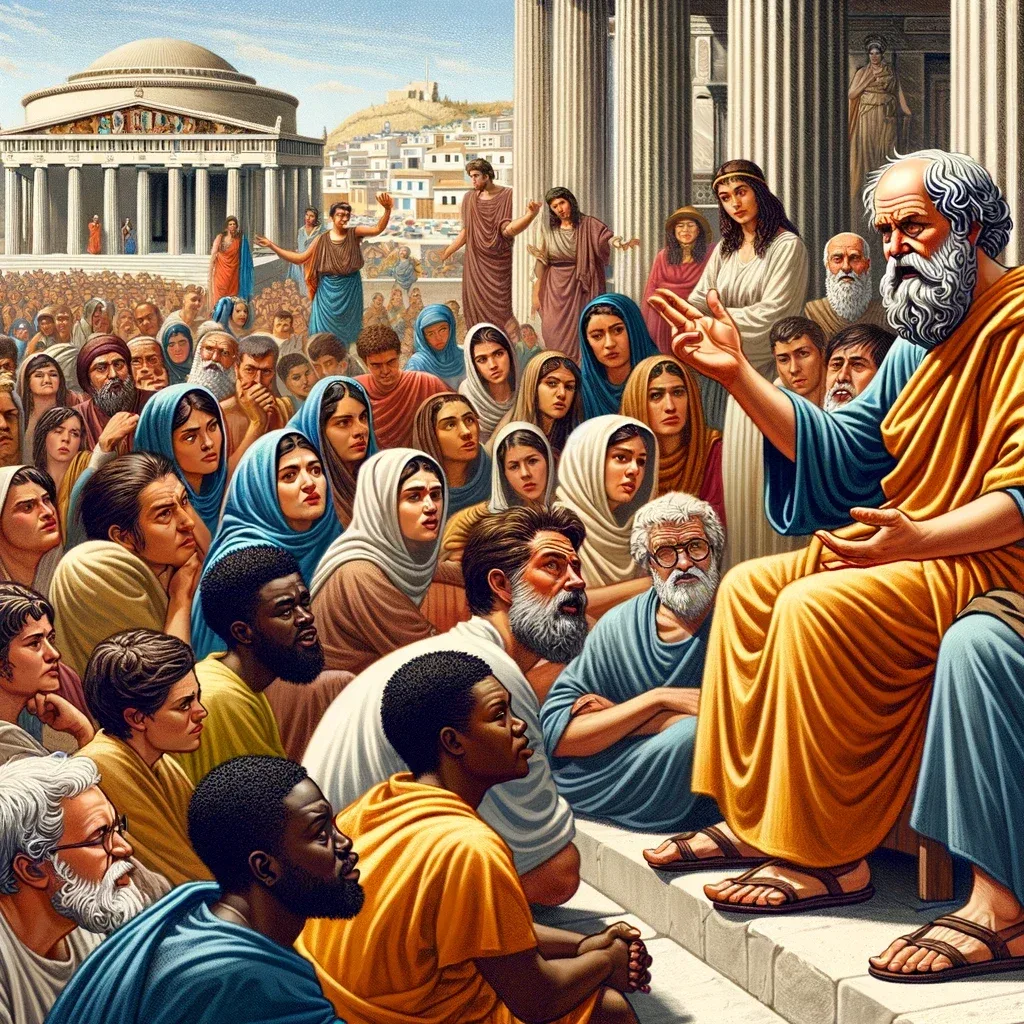
Origins of Expression
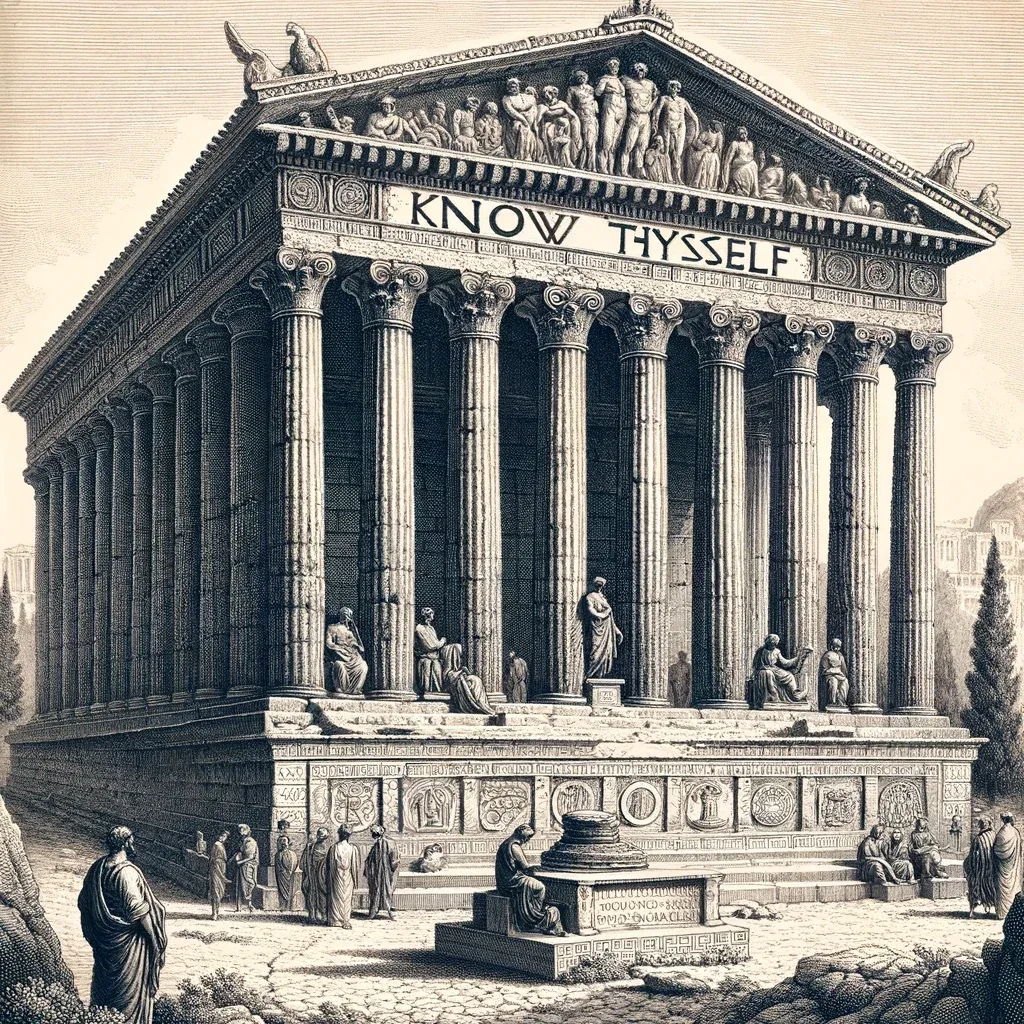
Historic context
The expression “know thyself” has its roots in Ancient Greece and is associated with the Temple of Apollo in Delphi. Although Socrates did not author the phrase, he adopted it as a central tenet of his philosophy.
Socrates and the Inquiry
Socrates, the Athenian philosopher, used this maxim as a starting point for his methodology of inquiry, known as maieutics. For Socrates, knowing oneself was a call to introspection and understanding one's ignorance.
Influence on Greek Philosophy
The expression profoundly influenced Greek thought, echoing through the works of Plato, a disciple of Socrates, and other subsequent philosophers. It became a foundation for the search for self-knowledge and virtue.
Know Yourself in Socratic Practice
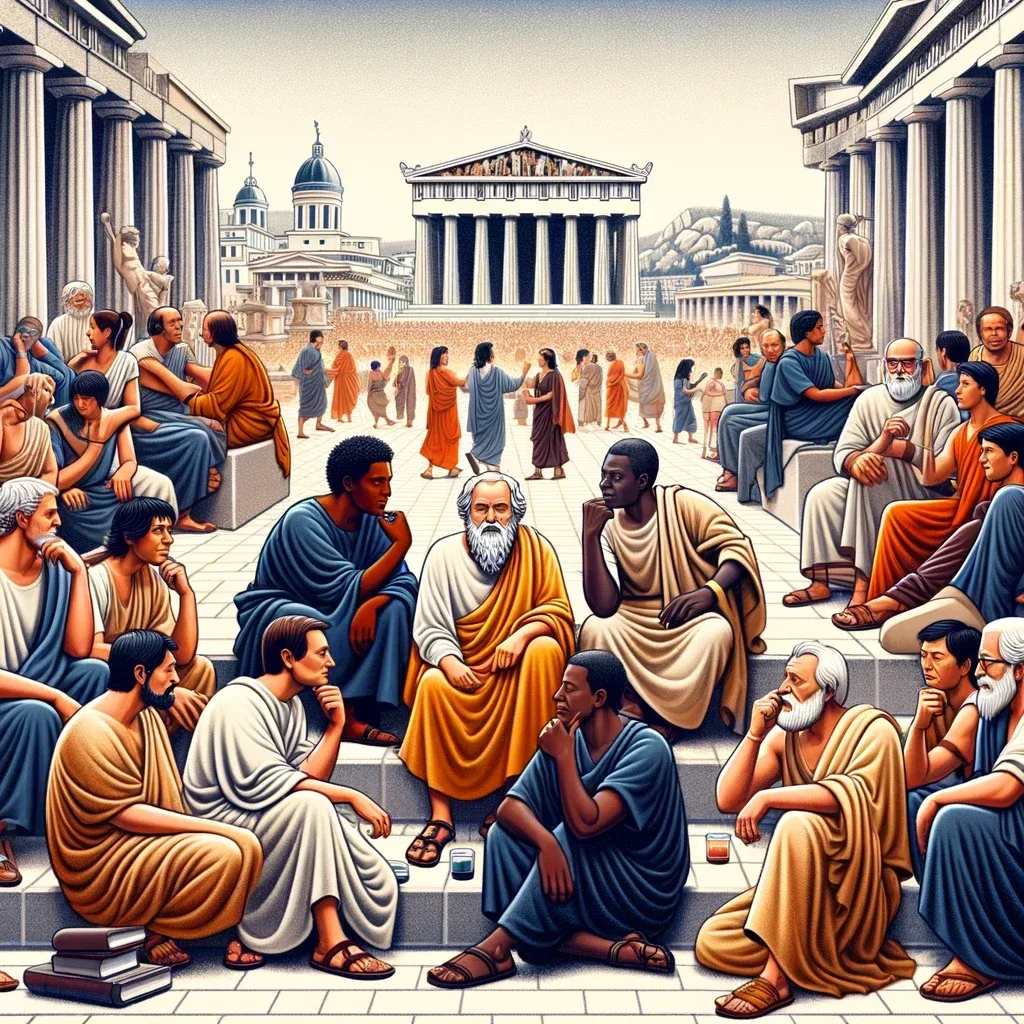
The Socratic Method
The Socratic method of questioning put the expression “know thyself” into active practice. Through question after question, Socrates guided his interlocutors to recognize their own limitations and awaken a genuine search for wisdom.
Self-knowledge and Virtue
For Socrates, self-knowledge was intrinsically linked to virtue. Understanding oneself was the first step to living a virtuous life, as true wisdom lay in recognizing one's ignorance.
Impact on Socratic Ethics
Socratic ethics, with its focus on self-examination and the relentless search for truth, emerged from this imperative. Socrates argued that self-knowledge was fundamental for moral and ethical development.
Philosophical and Modern Implications
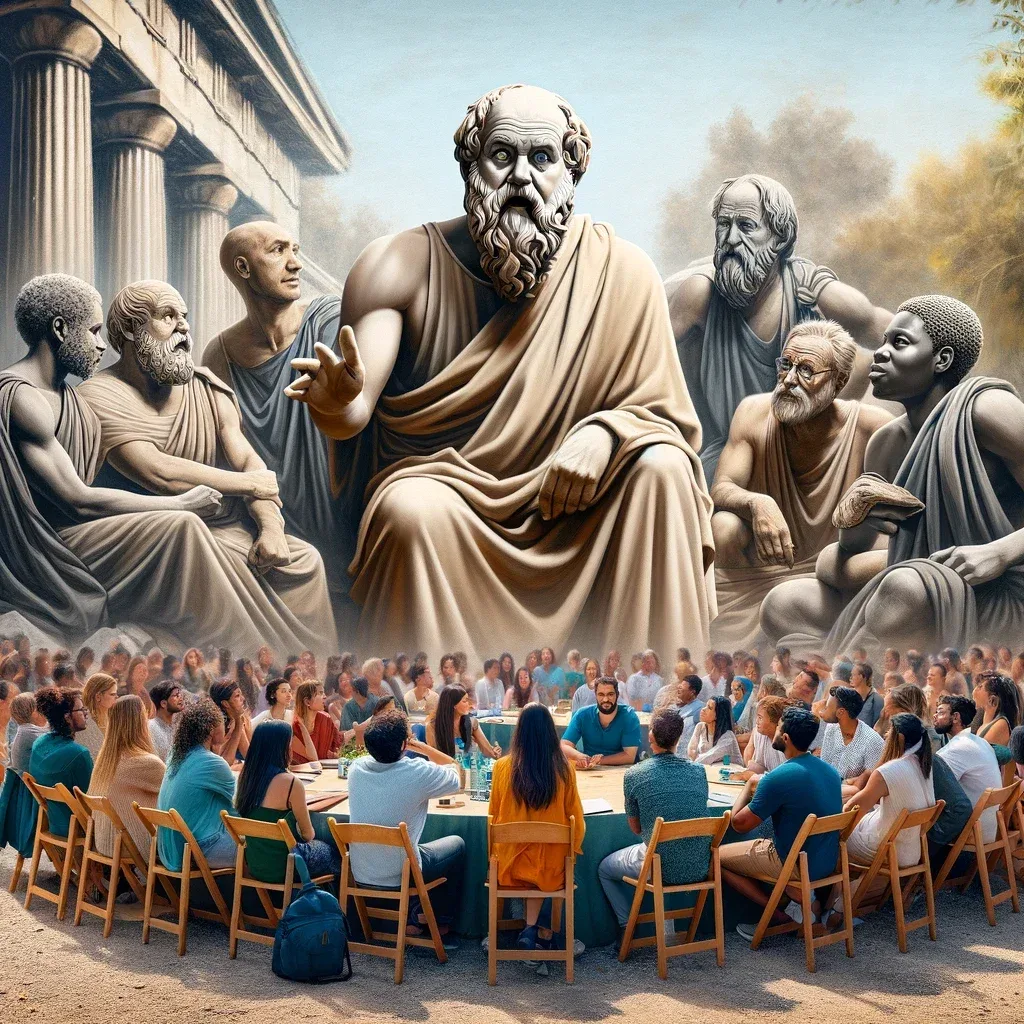
Knowledge versus Ignorance
In Socratic philosophy, recognizing one's ignorance is seen as a sign of wisdom. Socrates challenged preconceived notions of knowledge and truth, promoting a continuous state of questioning.
The Search for Truth
The expression “know yourself” symbolizes each individual’s journey in search of truth. For Socrates, this quest was a lifelong mission and the essence of the human experience.
Contemporary Relevance
The maxim maintains its relevance in modern times, inspiring introspection, ethical reflection and the search for self-knowledge. She continues to be a pillar in discussions about philosophy, psychology and education.
Conclusion
“Know thyself,” although a short phrase, encapsulates one of the most profound and enduring ideas of Socratic philosophy. Socrates, through his life and teachings, exemplified the transformative power of self-knowledge and critical reflection. This maxim is not just an invitation to introspection, but a path to wisdom, virtue, and deeper understanding of our own lives. Today, he continues to challenge, inspire and guide those who seek true wisdom.
Frequently Asked Questions about the Expression “Know thyself” in Socratic Philosophy
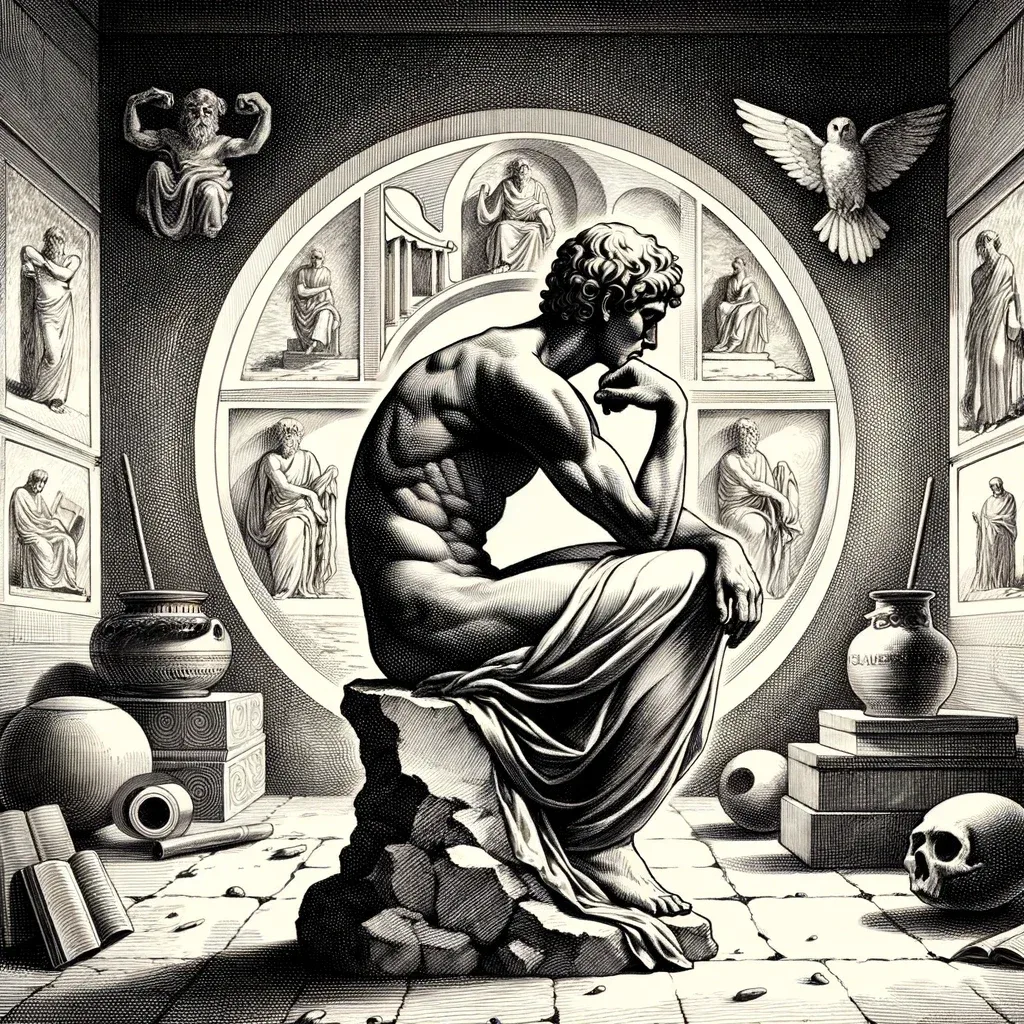
This FAQ aims to clarify common questions related to the famous Socratic maxim “know thyself”, exploring its meaning, origin, application and relevance in Socrates' philosophy.
1. What is the origin of the expression “know yourself”?
2. How did Socrates use this expression in his philosophy?
3. What is the relationship between self-knowledge and virtue in Socrates?
4. How does the Socratic method relate to this expression?
5. What is the contemporary relevance of this expression?
6. How did Socrates differentiate between knowledge and ignorance?
7. What is the importance of expression in Socratic ethics?
8. How did the expression influence other philosophers?
9. Did Socrates believe that self-knowledge leads to happiness?
10. Does the expression “know yourself” have relevance in modern psychology?
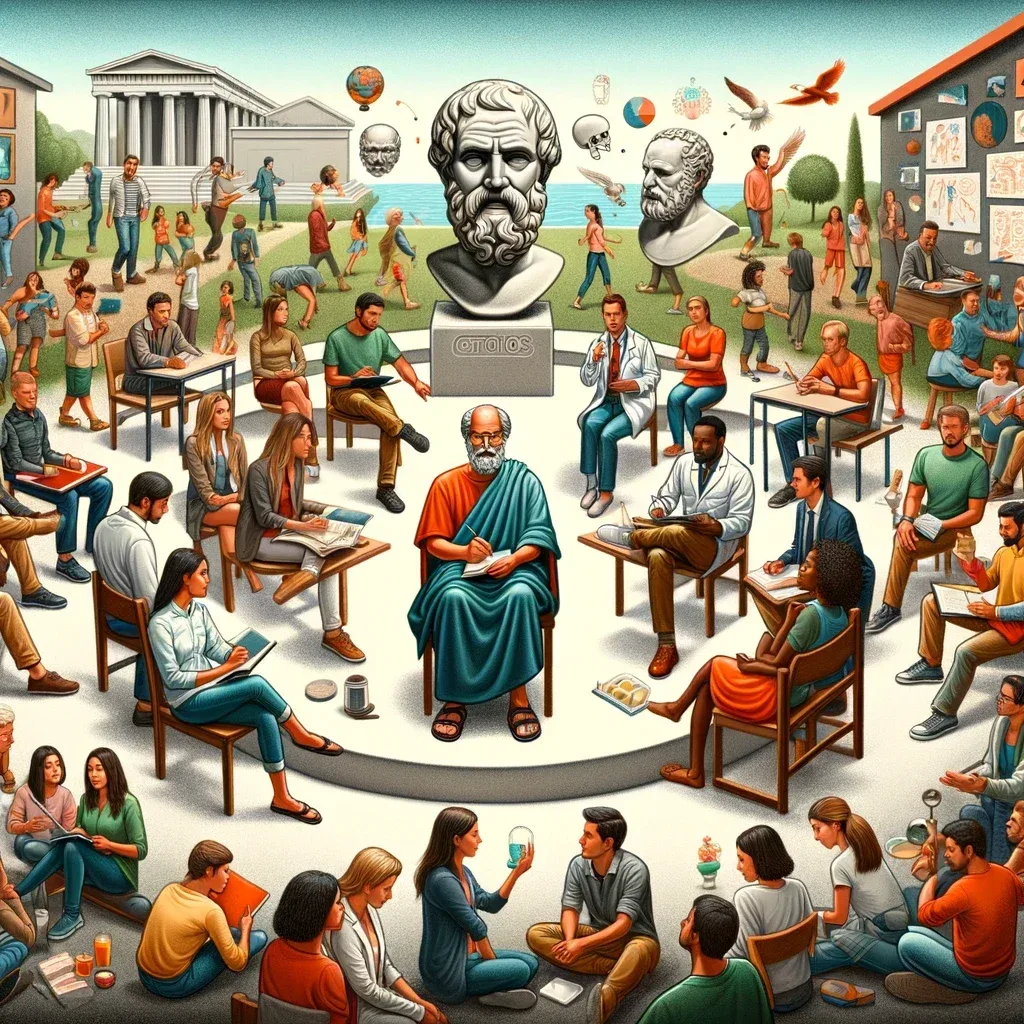
These questions and answers seek to provide detailed insights into the importance and impact of the expression “know thyself” in Socratic philosophy and its ongoing influence on various areas of knowledge and modern life.





